WHO WAS HE?
Ferenc Nagy (1903–1979) was a smallholder politician, member of parliament, prime minister, and president of the Independent Peasant and Civic Party. He came from a small peasant family of Reformed faith, and his parents farmed 15 cadastral acres (8.63 hectares) of land in Bisse. Ferenc Nagy completed six years of elementary school. He worked on the family estate. As an only child, he had to work hard on the land from the age of 10 while his father fought on the front lines of World War I. He educated himself, wrote, and cultivated his mind. The peasant boy eventually became a respected smallholder politician and the first prime minister of the Second Hungarian Republic.Ferenc Nagy
He married in 1924 and had five children: two sons (Ferenc and László) and his eldest daughter (Julianna) were born in Hungary, while his two younger daughters (Zsuzsanna and Zsófia) were born in the United States. Zsuzsanna and Zsófia are still alive today.

Portrait of Nagy Ferenc
"In terms of ownership, workers must be brought closer to other factors of production. Thus, land must be given to the working people, and workers must be given greater influence over their own productive areas. Economic democracy must be created."
Ferenc Nagy
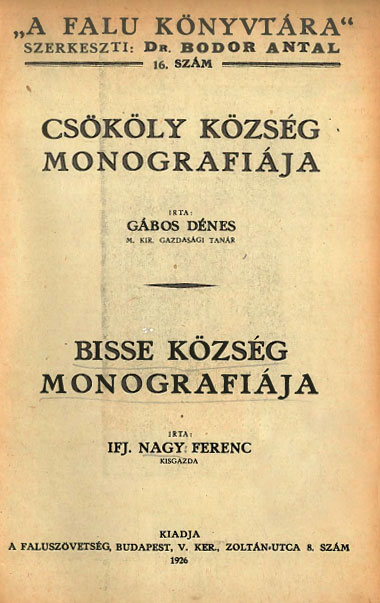


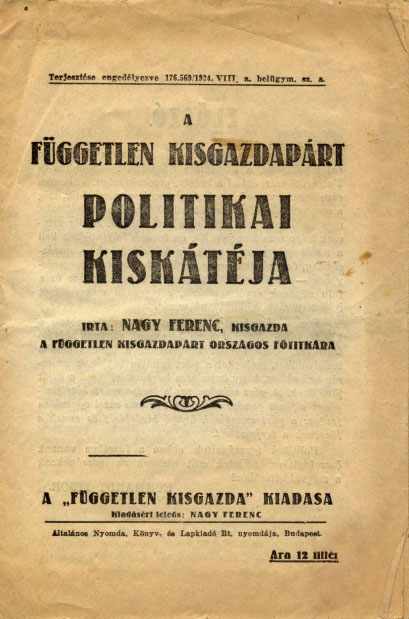

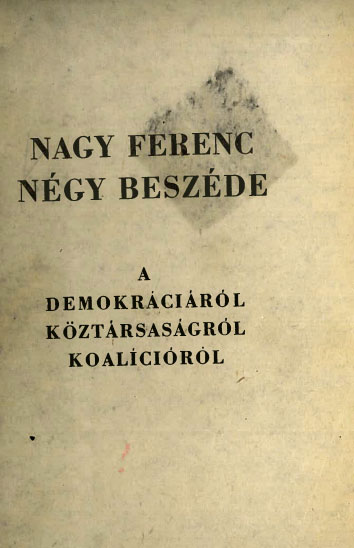
A peasant boy becoming prime minister
Ferenc Nagy began writing for various newspapers at a very young age, starting in the 1920s. He acted in village plays and wrote the play Aranykalászok (Golden Ears of Corn). He was the county vice-president of the smallholders' movement founded by István Szabó in Nagyatád, Baranya County, and his political views were published in the county newspapers in Pécs. He gained national fame through the Pesti Hírlap newspaper.
He entered politics in the 1930s. Together with Zoltán Tildy, he organized the Independent Smallholders' Party, of which he was secretary-general between 1930 and 1945. A strong smallholders' party camp was formed in Baranya for the 1939 elections. In 1941, he was one of the initiators of the Hungarian Peasant Association, serving as its president from 1941 to 1943. Throughout his political career in Hungary, he steadfastly represented the interests of rural smallholders and the destitute.
“The party believes that cooperation will be the future economic model for the people. (...) capitalist activity must be abolished.”
Ferenc Nagy
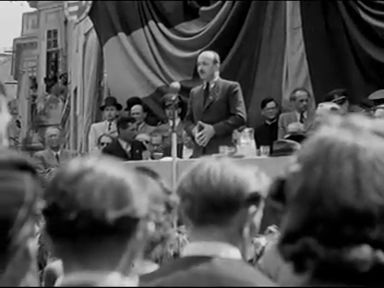
Ferenc Nagy gives a speech at the Smallholders' Assembly in Székesfehérvár, 1946.
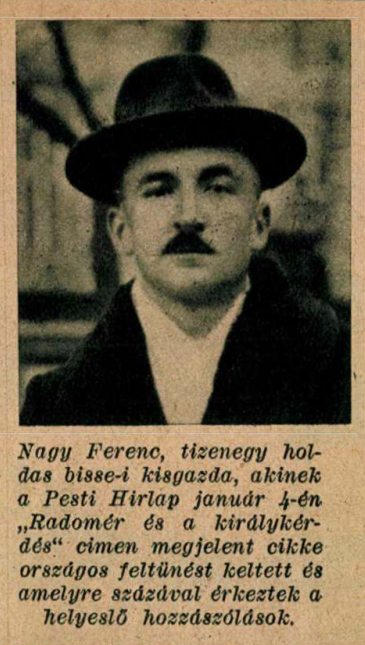
Magyar Hírlap, 1929
During the German occupation of Hungary, he was arrested by the Gestapo in 1944 and imprisoned from April 12 to October 10. After his release, he was forced into hiding when the Arrow Cross Party seized power. Despite his political persecution, he opposed the collective guilt and deportation of Germans from the outset.
The fruits of his political work between the two world wars truly ripened after the war. In early 1945, he began reorganizing the Hungarian Peasant Union and the Independent Smallholders' Party. Between 1945 and 1946, he was briefly Minister of Reconstruction, President of the National Assembly, and a member of the National Council, as well as President of the World Federation of Hungarians. As István Csicsery-Rónay wrote, "In 1945, a charismatic leader of great stature entered the stage of Hungarian history."1
As prime minister
In the turbulent, reconstruction-driven spirit of the brief democratic period following World War II, the Second Hungarian Republic was able to embark on the long-awaited path of social revolution. The 1945 democratic elections brought a landslide 57% victory for the Independent Smallholders' Party, which gave it enormous political authority to implement urgent social reforms. Instead of Zoltán Tildy, who was elected president of the republic on February 4, 1946, Ferenc Nagy was ultimately appointed prime minister of Hungary and formed a new government. The program of the Independent Smallholders' Party could finally be implemented.
“The meeting with Stalin lasted two hours, and we left with the impression that we had already achieved results in the economic sphere...”
Ferenc Nagy
Ferenc Nagy's government had to rebuild a ruined, starving country that was also suffering from diplomatic instability and war reparations. To curb post-war hyperinflation, his government replaced the devalued pengő with the forint, which is still in use today, and signed the Paris Peace Treaties. Seeking foreign policy consolidation, he negotiated with both the US and the Soviet Union and repatriated Hungary's gold and silver reserves. The progressive, urban-rural administrative reform of smallholders was prepared by Ferenc Erdei and István Bibó.
Forced resignation
However, he was only able to hold the position of prime minister for 16 months. Following the show trials provoked by the communist deputy prime minister, Mátyás Rákosi, more and more representatives were expelled from the Smallholders' Party. Béla Kovács, a Smallholders Party representative, was taken to the Soviet Union on trumped-up charges. Ferenc Nagy was blackmailed by communists supported by the Soviet Union (and the Allied Control Commission) with his son László while on vacation in Switzerland, and was forced to resign on June 1, 1947. He was eventually expelled from the Smallholders' Party, and after the communists had fragmented the party using "salami tactics," Lajos Dinnyés formed a government.
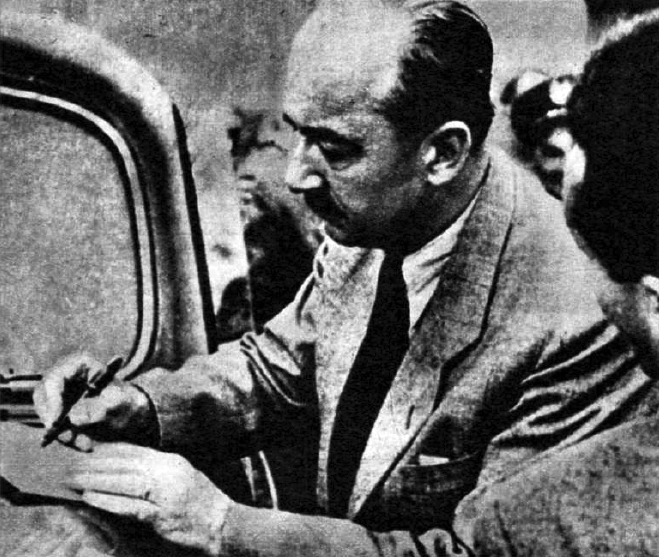
Ferenc Nagy signed his resignation statement on the hood of a car in Buchs, at the Swiss border crossing.
References
1) Csicsery-Rónay István (2003): Nagy Ferenc. Csillagos Órák - Sorsfordító Magyarok (Kötelmúltunk közelről) XIV–XV. Budapest: Occidental Press.
1) Csicsery-Rónay István (2003): Nagy Ferenc. Csillagos Órák - Sorsfordító Magyarok (Kötelmúltunk közelről) XIV–XV. Budapest: Occidental Press.